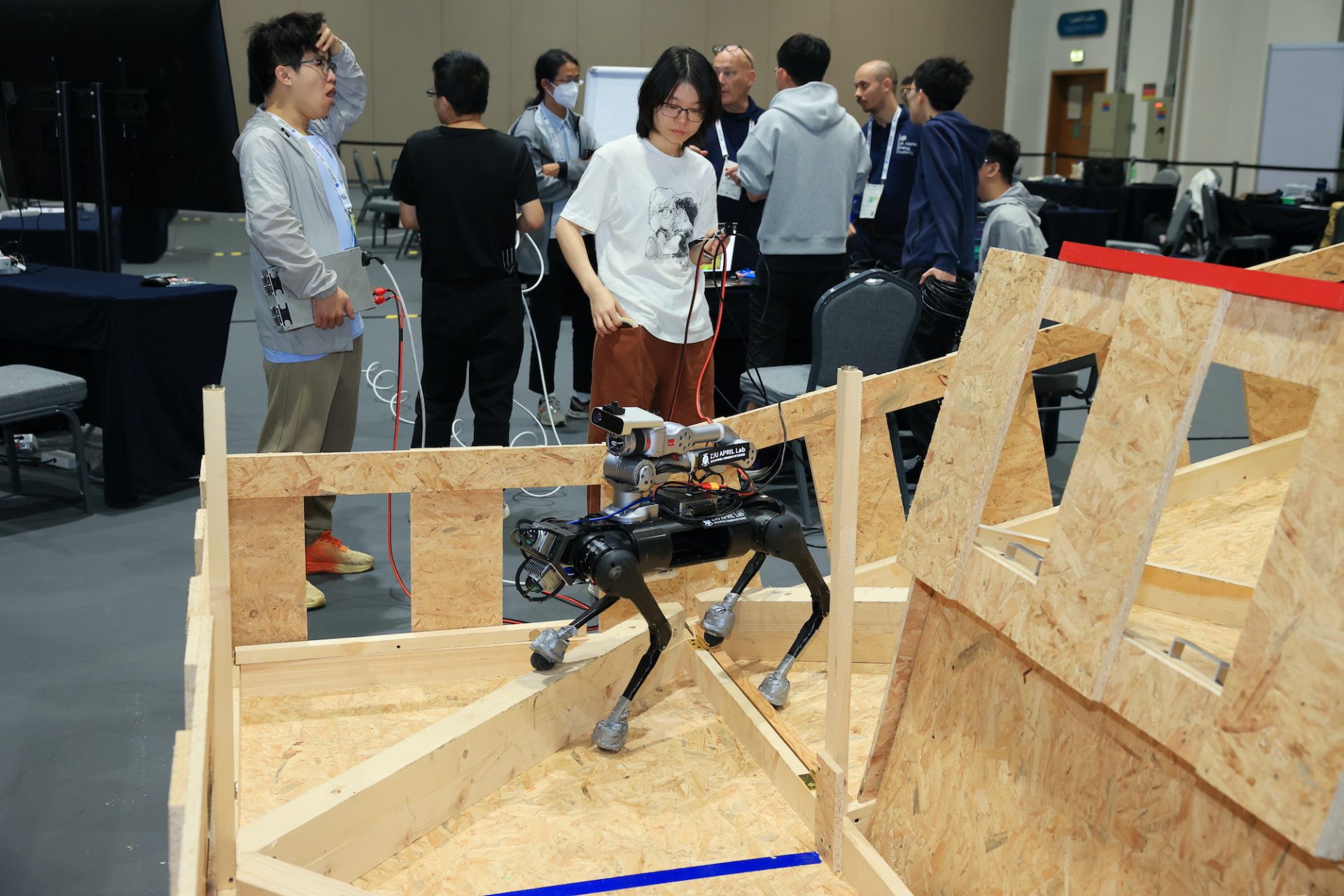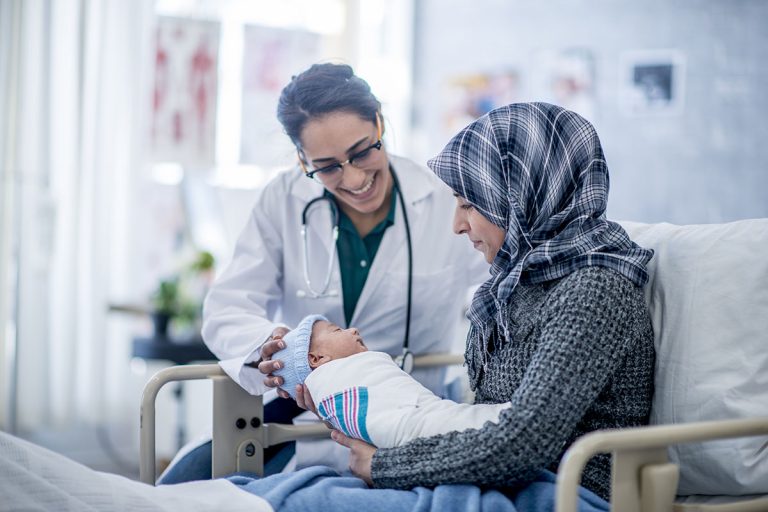The future of AI and robotics: Insights from IROS 2024
Robotics experts discussed and shared insights about pathways to sustainable development at this year’s International Conference on Intelligent Robots and Systems.
Abu Dhabi is strengthening its position as a major hub for robotics experts with this year’s international conference on intelligent robots and systems (IROS 2024). Held from October 14-18, the IEEE/RSJ event brought together global researchers, scientists, engineers, and industry professionals to showcase the latest advancements and innovations and discuss how these findings can ensure long-term environmentally and socially responsible growth.
“The conference was designed to offer participants cutting-edge knowledge, networking opportunities, practical applications, and hands-on experiences in robotics and AI, fostering valuable insights and collaborations,” says Director of Marketing and Communication at Khalifa University Sayed Al Hashmi.
A first in the Middle East and North Africa region, the event highlighted the region’s rapidly advancing capabilities as well as groundbreaking research and innovation in robotics and smart systems. It also served as a platform for universities, research institutions, and industry professionals to showcase their work while inspiring local talent and fostering collaboration.
Groundbreaking research and innovation
The event featured a diverse program of keynote lectures, forums, and workshops. Distinguished experts such as Oussama Khatib from Stanford University, Magnus Egerstedt from the University of California, Irvine, and Najwa Aaraj, who runs the UAE’s Technological Innovation Institute, shared insights on cutting-edge topics, including human–robot and robot–robot collaboration, interaction, and trust in various environments ranging from healthcare to biological systems. Yoshihiko Nakamura, from the UAE’s Mohamed Bin Zayed University of Artificial Intelligence, also talked about AI–robotics integration.
“The IROS2024 conference was designed to offer participants cutting-edge knowledge,
networking opportunities, practical applications, and hands-on experiences in robotics and AI, fostering valuable insights and collaborations.”
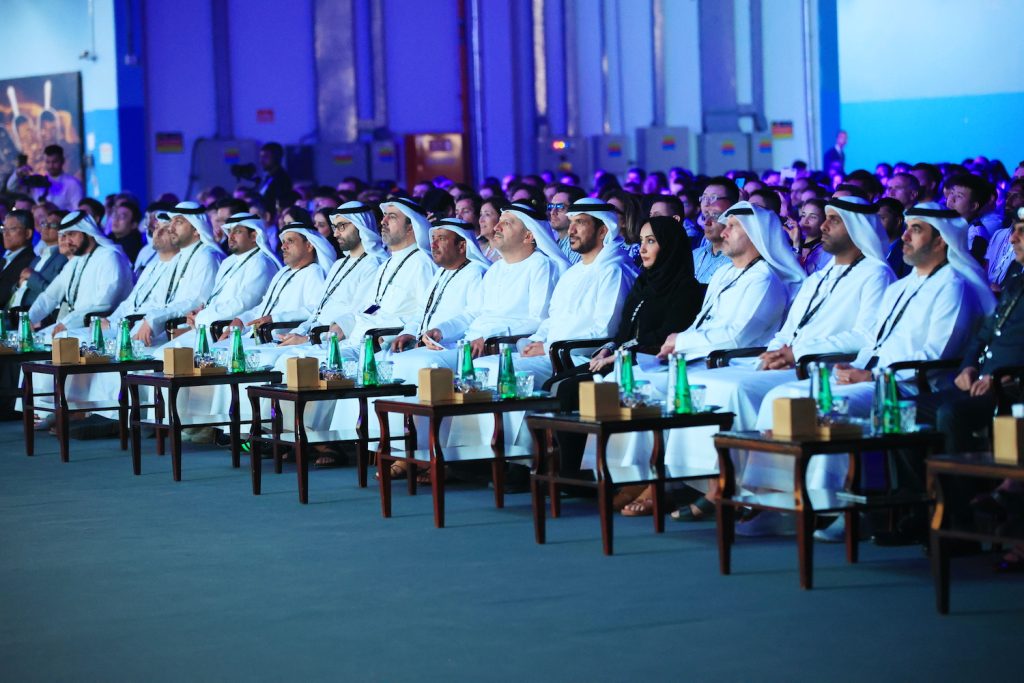
Leading experts presented pioneering research on autonomous flying machines and lightweight miniature drones, which are set to play a key role in transportation, logistics, and surveillance.
Among the experts was Davide Scaramuzza from the University of Zurich, Switzerland, who specializes in drone racing, pushing the boundaries of high-speed, and agile flight in competitive environments. Giuseppe Loianno from New York University, presented his work on boosting drone performance by optimizing agility and collaboration. Naira Hovakimyan, from the University of Illinois Urbana-Champaign, addressed the critical issue of ensuring safety and reliability in autonomous systems in complex, dynamic environments, while Guido De Croon, from TU Delft, discussed integrating brain-inspired algorithms into insect-like drones working alone or in swarms, and Mirko Kovac from Imperial College, United Kingdom, spoke about developing drones to enhance monitoring and preservation efforts in fragile ecosystems.
Another key area of focus was bio-inspired robotics, which mimics physical structures and mechanisms found in living organisms to produce efficient and adaptable designs useful in fields such as healthcare and engineering. Several examples were presented during the conference, for instance, bio-robotics and computational neuroscience expert Auke Ijspeert, head of the EPFL Biorobotics Laboratory, Switzerland, highlighted how he uses insights from animal locomotion to develop highly efficient robotic systems, while Barbara Mazzolai from the Fondazione Istituto Italiano Di Tecnologia, Italy, presented her work on creating soft robots, which are made from flexible, deformable materials like silicone or rubber, inspired from natural organisms.
These robots can be useful for medical devices, wearable technologies, exploration, and even rehabilitation. Another example came from Kaspar Althoefer from Queen Mary University, United Kingdom, who focuses on translating nature’s efficiency and precision into medical robotics that enhance surgical performance. Justin Werfel, Senior Research Fellow at Harvard University, in the United States, evaluates social insects to develop cooperative robotic systems capable of solving intricate tasks.
Advanced AI and machine learning
Intelligent robots are revolutionizing industries, thanks to advanced AI and machine learning algorithms. Several experts discussed how AI is driving global innovation in various domains, such as telecommunications and robotics, enabling machines to perceive, learn and adapt to complex environments.
Barbara Caputo, who leads the AI Hub at Politecnico di Torino, Italy, spoke about her work to drive the practical implementation of AI in industries to solve real-world challenges, while Merouane Debbah, director of the KU 6G Center at Khalifa University, showcased his groundbreaking work on TelecomGPT by integrating AI with next-generation telecommunication systems for smarter, more efficient networks, and Concepción Alicia Monje from University Carlos III of Madrid, Spain, outlined how she’s developing AI-enabled soft robots with greater flexibility and adaptability for delicate tasks.
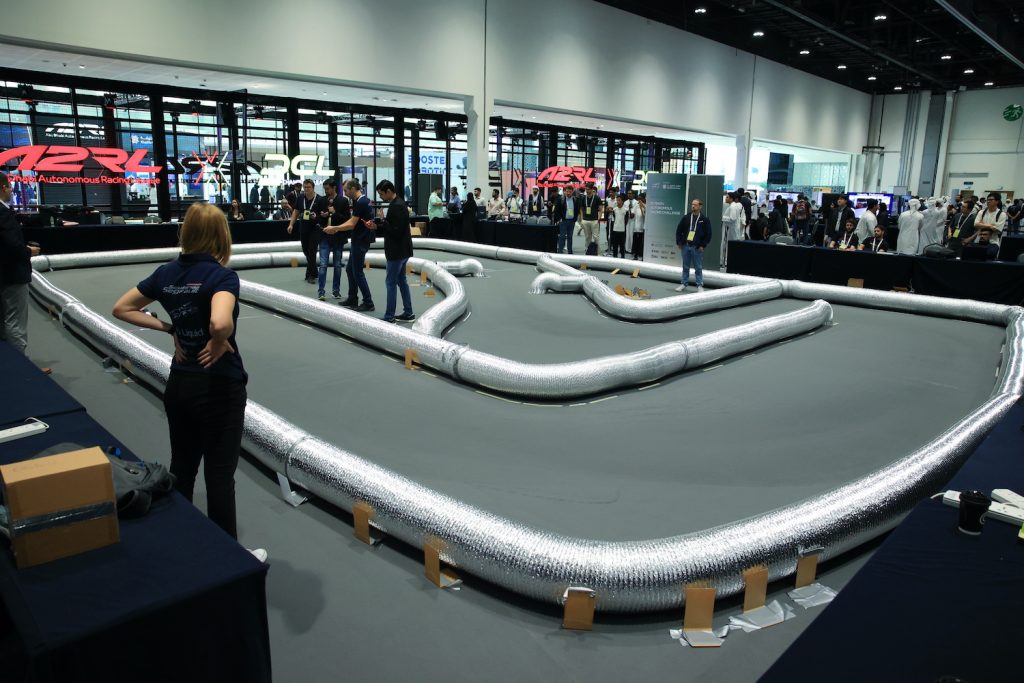
“IROS 2024 succeeded in driving innovation, collaboration, and economic growth in the UAE and the MENA region, positioning them at the forefront of the global robotics and AI landscape.”
Sayed Al Hashmi
Cross-modal machine learning was the focus of a talk by Jianwei Zhang, from the University of Hamburg, Germany, whose work aims to teach robots to integrate and process information from multiple sensory inputs, mimicking human perception. President of Mohamed bin Zayed University of Artificial Intelligence (MBZUAI), UAE, Eric Xing, spoke about exploring next-generation foundation models that extend beyond traditional lingual and visual intelligence.
The final keynote session brought together leading experts who promote robotics through innovation, high-profile global competitions and grand challenges. A key figure in European robotics, Pedro Lima from the University of Lisbon, Portugal, is overseeing initiatives, such as the European Robotics League competitions and euROBIN Coopetitions. These initiatives are expected to strengthen European robotics capabilities, act as an educational platform by raising student awareness and understanding, as well as allowing robotics and AI teams to simultaneously collaborate and compete using robots.
Among the speakers was Timothy Chung, a program manager at the Defense Advanced Research Projects Agency (DARPA) tactical technology office, and now general manager of Autonomy and Robotics at Microsoft. Chung helped shape robotic innovation in the Americas through the DARPA Challenges. In particular, he ran the DARPA Subterranean (SubT) Challenge, which aimed to engineer autonomous robots that can navigate, map, and search in hazardous and unstructured subterranean settings, such as tunnels, caves, and urban underground spaces, by combining AI and robotics.
President of the RoboCup Federation, Ubbo Visser, from the University of Miami, demonstrated how the federation is advancing robotics through the Robot World Cup initiative, or RoboCup, an annual international competition that fosters collaboration in AI and robotics research. Thomas McCarthy, Executive Director of ASPIRE, the technology transition arm of UAE’s Advanced Technology Research Council, highlighted the grand events he manages, such as the Mohamed Bin Zayed International Robotics Challenge, which are set to accelerate the translation of robotics innovations from lab to market and real-world applications.
Networking and collaboration
IROS offered attendees opportunities to network with experts and peers and open doors for collaborations and partnerships, while hands-on workshops and tutorials offered practical experience. The conference’s various forums enabled fruitful discussions on the technological and socio-economic impact of robotics on sustainability, human–robot interaction and future societies, regulation and policy, regional innovation and entrepreneurship, as well as diversity.
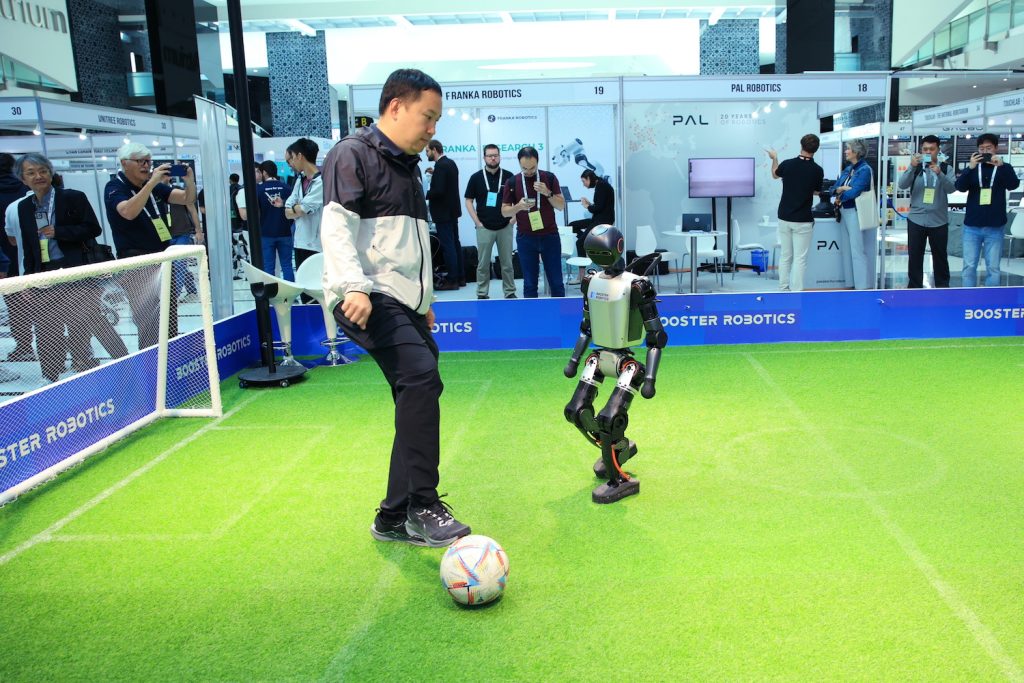
Technical visits and competitions were just as beneficial, providing a deeper understanding of real-world applications and inspiring creativity and innovation. Attendees had the chance to visit several facilities at Khalifa University, MBZUAI, and the applied robotics and AI research lab at Dubai Future Foundation, which feature some of the leading-edge technological capabilities in the country.
“IROS 2024 succeeded in driving innovation, collaboration, and economic growth in the UAE and the MENA region, positioning them at the forefront of the global robotics and AI landscape,” Al Hashmi says.

